FUDcon 8
During a misadventure over the past weekend, a friend reminded me that the last significant entry in my personal blog was about a Zombie Walk from October. The most recent one, however, was about my plan to attend FUDCon 8.
FUDCon is a gathering of Fedora users and developers, vaguely like Rational's own annual Software Developer Conference. Most attendees are either working on developing Fedora itself or deploying and managing systems using Fedora, which somewhat put me on the sidelines. Fedora was one of the first distributions to include Eclipse compiled natively so it could be run with an open source VM. My own involvement with Fedora traces back to its predecessor, Red Hat Linux. And I don't mean the Enterprise offering they market these days, I mean the original Red Hat Commercial Linux, from when modular kernels were new, automatic hardware detection didn't happen, and when RPM was still written in Perl and the complete guide to using and creating packages for it took up one chapter in the supplied user guide. Old.
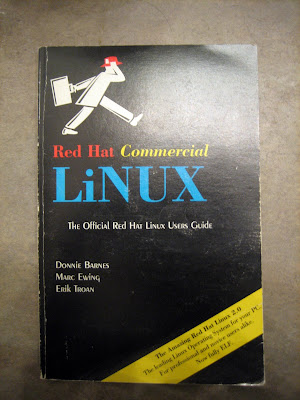
This FUDCon took place in Raleigh at Red Hat's headquarters, and both my twin brother and and old friend showed up to attend. I was mistaken for my brother more than once during the event ("Why is Nalin running Windows?" as Warren Tagomi asked) as he is a Red Hat employee and used to work in that building. Each day of the conference began rather early, and Im not really a morning person.
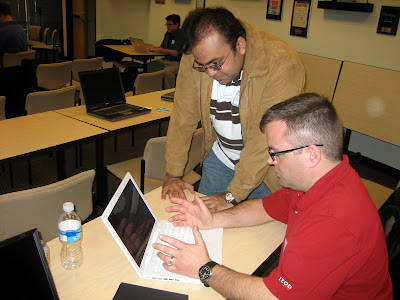
The first day was a hackfest working on parts of Fedora, just like the third day. I didn't do too much that day, or on the third day, since I really don't go hacking on system code that much anymore. I did get to sit in a room with members of Red Hat's kernel team and listen to what they were discussing. Most memorable to me were the fascination with the recently arrived OLPcs and that Dave Jones managed to get my Thinkpad X30 to no longer lock up randomly after starting X. I miss that kind of work sometimes, but working in the Eclipse world has its own fun challenges.
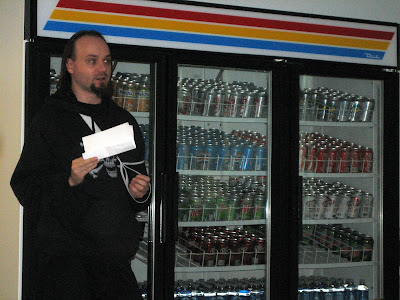
The second day was in a BarCamp format, which lives and dies with the attendees.
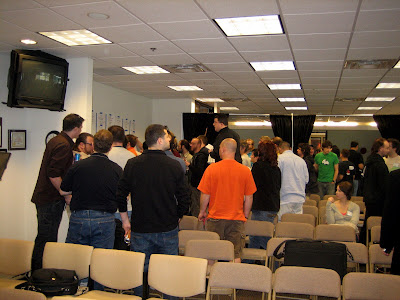
There were a lot of attendees.
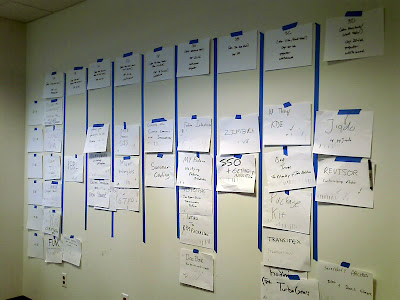
There were a lot of suggested sessions.
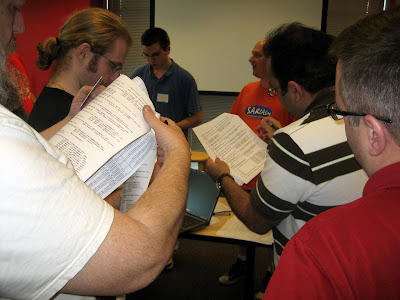
This required some planning.
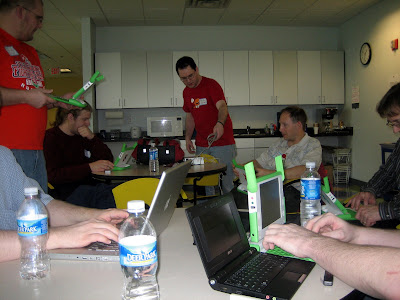
One of the earlier sessions I dropped in on was simply a meetup of folks with very tiny machines, such as the OLPC and Asus' recently released EEEPC. The OLPC actually runs software provided by Red Hat and there were many of them in the room. The EEPC runs another customized Linux distribution, but is more of a conventional PC--essentially the hardware of early UMPC tablets in the more traditional laptop form factor. Both machines are surprisingly easy to work with.
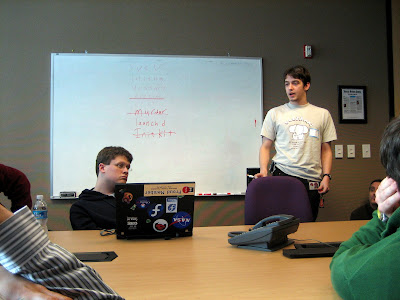
A later session was going over how the bootup process could be improved. While much of it went over my head, it was still interesting to hear reasoned discussions of why certain replacements to the dated System V init daemon were better or worse, with a reminder that working code is often the best place to start from.
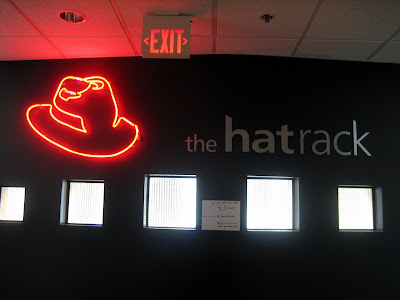
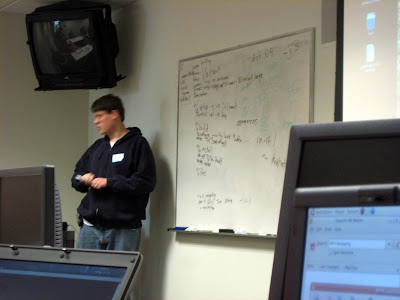
Afterwards was a talk on building RPMs the right way. Part tutorial and part refresher for me, it's remarkable how complicated it's gotten over the years while still keeping much of the original instructions written into the Red Hat Commercial Linux 2.0 manual valid.
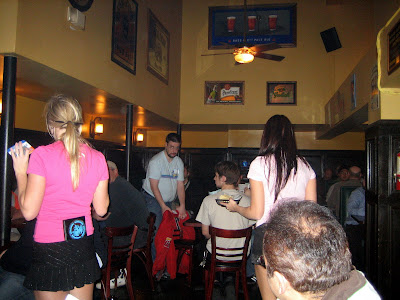
A first round of drinks was sponsored by Red Hat later at The Flying Saucer. I don't drink, but I was chided by a waitress for almost dozing off at the table. Good times.
FUDCon is a gathering of Fedora users and developers, vaguely like Rational's own annual Software Developer Conference. Most attendees are either working on developing Fedora itself or deploying and managing systems using Fedora, which somewhat put me on the sidelines. Fedora was one of the first distributions to include Eclipse compiled natively so it could be run with an open source VM. My own involvement with Fedora traces back to its predecessor, Red Hat Linux. And I don't mean the Enterprise offering they market these days, I mean the original Red Hat Commercial Linux, from when modular kernels were new, automatic hardware detection didn't happen, and when RPM was still written in Perl and the complete guide to using and creating packages for it took up one chapter in the supplied user guide. Old.
This FUDCon took place in Raleigh at Red Hat's headquarters, and both my twin brother and and old friend showed up to attend. I was mistaken for my brother more than once during the event ("Why is Nalin running Windows?" as Warren Tagomi asked) as he is a Red Hat employee and used to work in that building. Each day of the conference began rather early, and Im not really a morning person.
The first day was a hackfest working on parts of Fedora, just like the third day. I didn't do too much that day, or on the third day, since I really don't go hacking on system code that much anymore. I did get to sit in a room with members of Red Hat's kernel team and listen to what they were discussing. Most memorable to me were the fascination with the recently arrived OLPcs and that Dave Jones managed to get my Thinkpad X30 to no longer lock up randomly after starting X. I miss that kind of work sometimes, but working in the Eclipse world has its own fun challenges.
The second day was in a BarCamp format, which lives and dies with the attendees.
There were a lot of attendees.

There were a lot of suggested sessions.
This required some planning.
One of the earlier sessions I dropped in on was simply a meetup of folks with very tiny machines, such as the OLPC and Asus' recently released EEEPC. The OLPC actually runs software provided by Red Hat and there were many of them in the room. The EEPC runs another customized Linux distribution, but is more of a conventional PC--essentially the hardware of early UMPC tablets in the more traditional laptop form factor. Both machines are surprisingly easy to work with.
A later session was going over how the bootup process could be improved. While much of it went over my head, it was still interesting to hear reasoned discussions of why certain replacements to the dated System V init daemon were better or worse, with a reminder that working code is often the best place to start from.
Afterwards was a talk on building RPMs the right way. Part tutorial and part refresher for me, it's remarkable how complicated it's gotten over the years while still keeping much of the original instructions written into the Red Hat Commercial Linux 2.0 manual valid.
A first round of drinks was sponsored by Red Hat later at The Flying Saucer. I don't drink, but I was chided by a waitress for almost dozing off at the table. Good times.
Comments